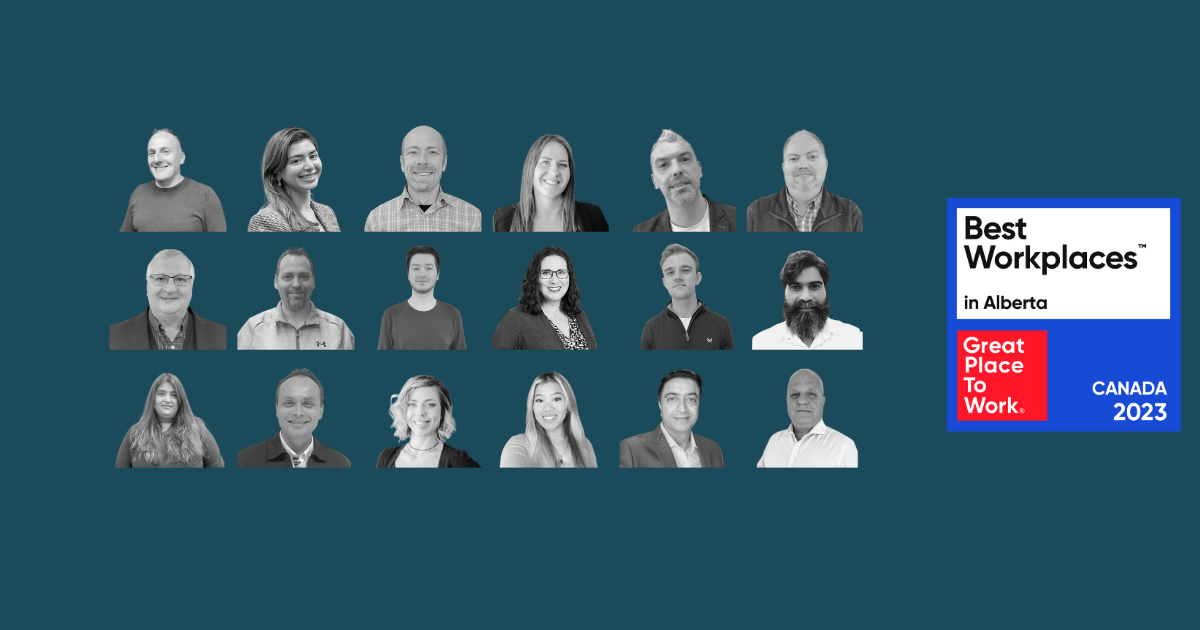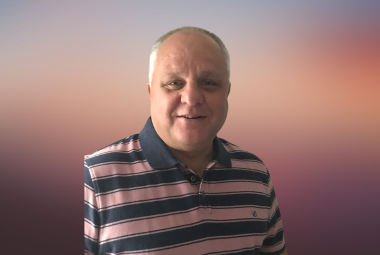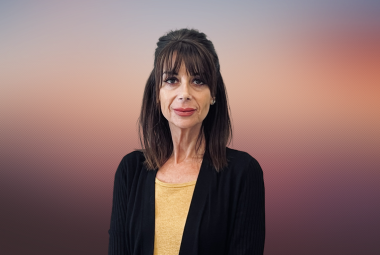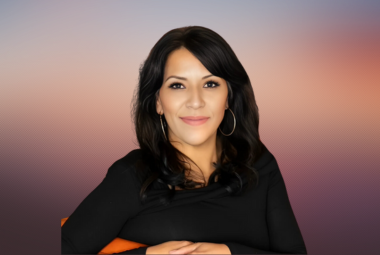This month, we’re shining the spotlight on Nemanja Sovic, Solution Specialist at Elantis. This globetrotter’s career path took him to Canada, the United States, Iceland, and back to Canada—which eventually led him to Elantis five years ago. In this interview, Nemanja shares how his natural talent for mathematics paved the way for an education in software engineering. He also shares some of his favourite books and resources that have helped him stay at the top of his game in the fast-changing world of IT.
Andrea Nwobosi: Tell me about your career path. What got you started in IT?
Nemanja Sovic: I started my career in IT in Iceland. That was about 12 to 14 years ago. In school, I did mathematics and I knew somewhere deep in my mind that my academic career was going to end up in IT when I got into the real world. I applied for a job in Iceland and I received an invitation to become a database developer for a pharmaceutical company. From then on, I got into SharePoint development about 10 years ago and it’s been like that since then.
Andrea: You mentioned that you’ve been strong in math and that you’ve always had a penchant for that. Did this start at a particular age? Were there people in your family who helped influence you to steer toward mathematics and technology?
Nemanja: Yeah, my dad is an engineer and he always held a high regard for mathematics. I went to a very small private university in the United States, and I was going to do software engineering. Actually, I was going to do electrical engineering if I went to a Canadian school, but since I went to a small school, they didn’t have that program and the best I could do was choose math. I’ve always had a talent for that. I thought it was wonderful because you could actually build your knowledge. If you are able to get through one stage, you’re able to apply knowledge to the next stage. I wouldn’t say it came naturally to me, but I was very close to being natural at it. I did well in all the entrance exams for schools, as long as they were in math. At the end of the day, mathematics is this beauty—for the lack of a better word. A lot of people feel that it’s all mechanical and kind of algorithmic, but really there’s beauty in it, in describing the world that we see. So that’s part of it too; that drew me in.
Andrea: What brought you to Canada and how did you discover Elantis?
Nemanja: I came to Canada in the early 1990s, but I didn’t stay long here and moved to United States. Then I spent another 10 or 12 years in Iceland. After that, I was ready to come back to Canada, which was about seven years ago. I used LinkedIn to apply for a job at a company in Edmonton and accepted that offer. After working for them for about three years or so, I decided to make a change to a smaller company and Elantis reached out to me. I’ve been working for Elantis ever since, and I’ve been here for almost five years.
Andrea: How has your journey with Elantis been for you? From when you started almost five years ago to what it is today, what are some changes that you noticed?
Nemanja: I’m the best person to ask these questions about Elantis’ growth because when I started, Elantis had maybe five people, we worked from home, and we didn’t have the office. Then in a span of five years, it’s just a tremendous growth that happened. Now we have a large office with close to 30 people. The company transformed; we’ve brought in some great talent, and it is an amazing thing to see. I feel proud that I was a part of it.
Andrea: Tell me about your role at Elantis and what your day-to-day looks like.
Nemanja: I came in as a developer and that was my starting point with the Elantis. I did straight developing and then I slowly switched into the low code part, which is our primary focus. As a developer, I developed a large application that was used by one of our clients. It was an application that helped them do site inspections for construction. I also did multiple languages, programmed in C# and then I switched to JavaScript, which is a front-end language, and slowly I switched to low code, which is what we’re doing right now. The work I’ve been doing within the last few years includes Nintex and Power Platform. So that was my transition from being a straight programmer to being a low code programmer, but really, I have done a lot of everything at Elantis for the five years I’ve been here. Oh, don’t forget about the migrations that I just started doing. That’s something that we’ve been doing for the last year and I got involved in recently—so I’ve done a wide spectrum of things.
Andrea: What would you say might be your favourite part of your job here at Elantis?
Nemanja: For sure, that’s easy. It’s just the people, people, people. Coming to the office, joking around, and having an atmosphere that is—I’m not going to say relaxed—but you know you can always joke around. The people are very nice and it’s a good team. People are always ready to help each other on projects and collaborate.
Andrea: You mentioned how you have been a big part of Elantis’ growth and that’s a huge accomplishment. But is there a moment that stands out to you in your time here?
Nemanja: Probably completing some challenging projects. The moment you know that you’re involved in a project that was challenging and then you have that quiet time after you hand over the project. After all the QA testing, internal testing, and customer testing, you don’t really hear anything from the client anymore and that’s when you know they’re using it. That’s when you know the work that you’ve done is being used by the client. To me, that’s the reward.
Andrea: Have you faced any challenges and how did you overcome them to get to that point of feeling the reward at the end?
Nemanja: Challenges are always there. It’s not necessarily an easy job we’re doing here as software developers. The two things that always help in development is collaboration, so leaning on your teammates when you have to, and then you have a certain amount of courage and optimism when you approach the project. Even if you don’t see a solution initially, you have to have courage that you will get the job done. So those two things are how I overcome challenges—both through my teammates and through a certain dose of confidence.
Andrea: I know that you are an avid reader. Are there any books, websites, or resources that have been really helpful to you along your career path, or anything that you would recommend to someone starting out?
Nemanja: I am an avid reader, but the books that I’ve read are the ones that are probably 100 years old. Authors like Leo Tolstoy, Fyodor Dostoevsky, and Franz Kafka. I would say the book that changed my life is probably Crime and Punishment—that’s a phenomenal book. People think that it’s deep and it is deep of course, and dark, but it’s really rewarding because the book is optimistic at its base. The whole idea is very optimistic, and I recommend it. It’s a great piece of literature and maybe the greatest ever written. As far as technical literature, I think that any programming language that you choose is very helpful.
Andrea: How do you stay on top of what’s current, given how fast technology changes? Are there any resources that you turn to?
Nemanja: Yes, I recommend social network groups and your peers. So, you basically make sure that you’re in groups relevant to the job. These groups send out notifications and can also follow certain influencers on the social network. There is also a stream of videos—I think the person’s name is Shane Young—particularly for Power Apps. You find a person that you like, you learn from them, and that’s where you get your information.
The technology changes so fast that reading a book about technology is absurd. I have a story particular to Microsoft InfoPath. I was expert in InfoPath and then Microsoft decided to pull the plug on the whole thing. So, should I say, I’ve read a book about InfoPath? No, you need something more dynamic than a book in order to stay on top of the technology.
Andrea: What is next for you along your career path? Where do you see your career taking you in the next five years?
Nemanja: I’m just getting better at what I do; I’m staying at the pace of technology. That’s a big challenge for all of us, as new technology comes along—having that energy to study and to get on par with the ever-changing technology. So, trying to keep up that energy and always being ready to learn at all times and the results will come. I’m hoping to be able to help my peers and form a good environment where we can help each other and produce some good work.



























